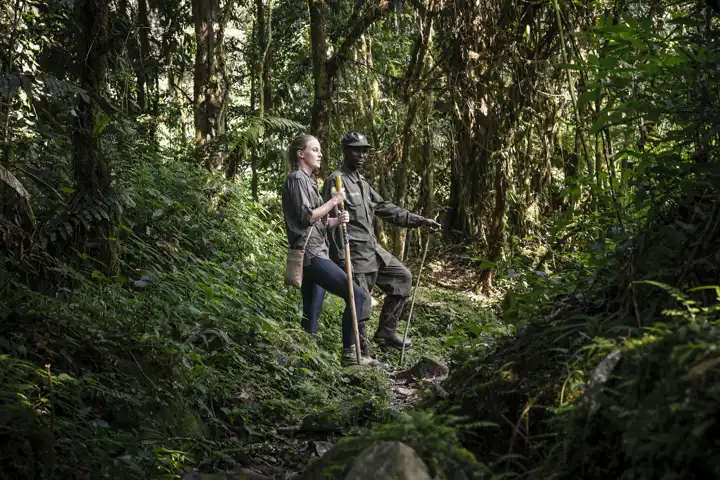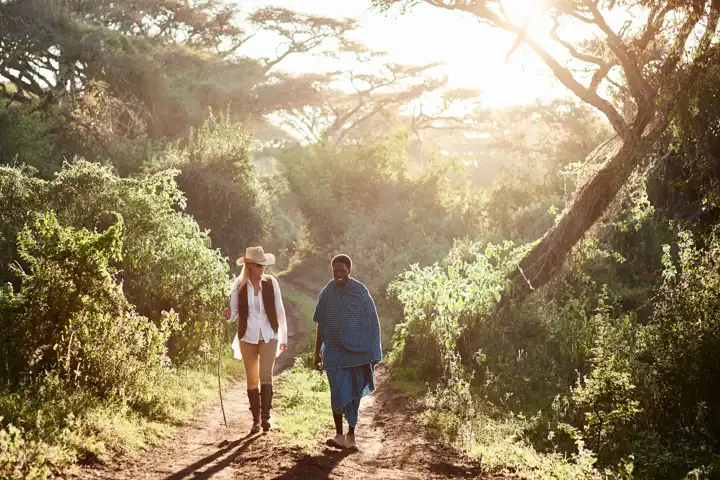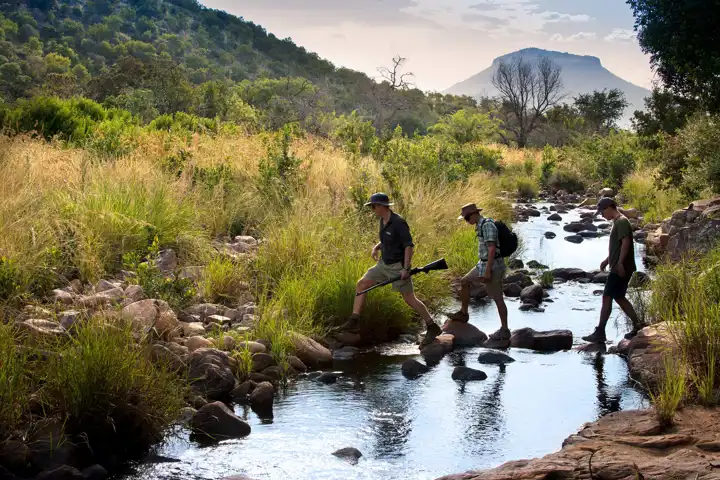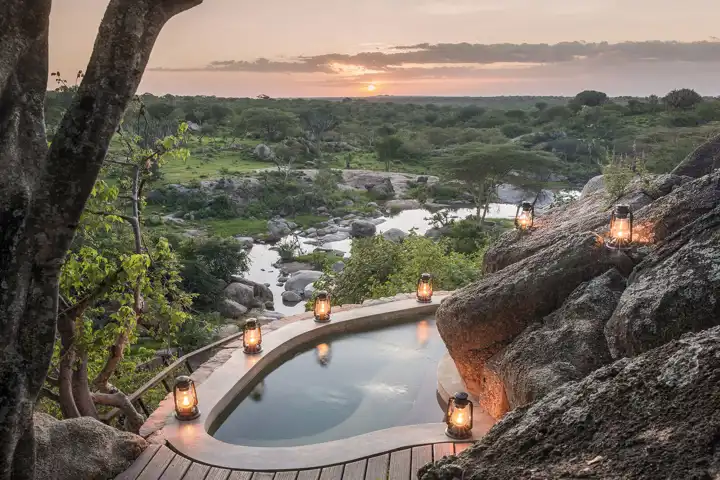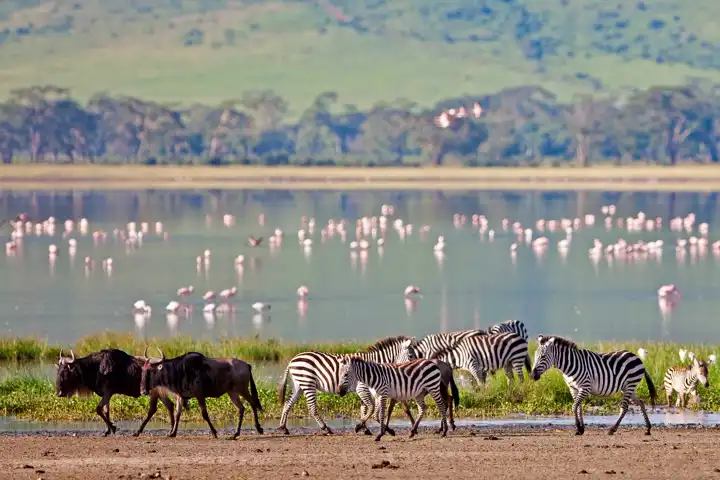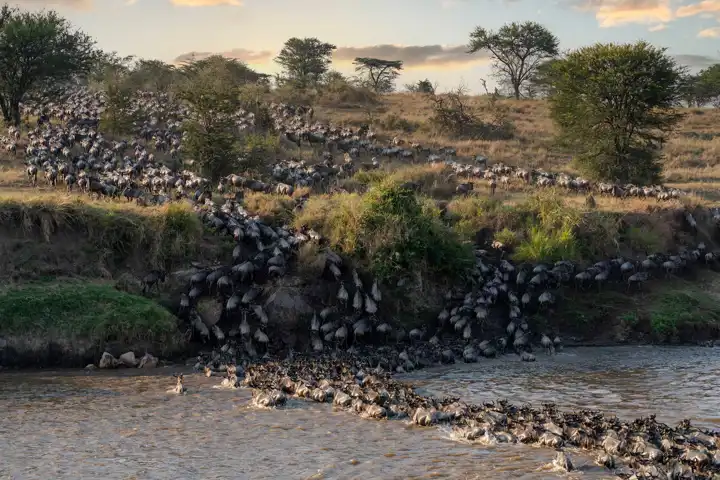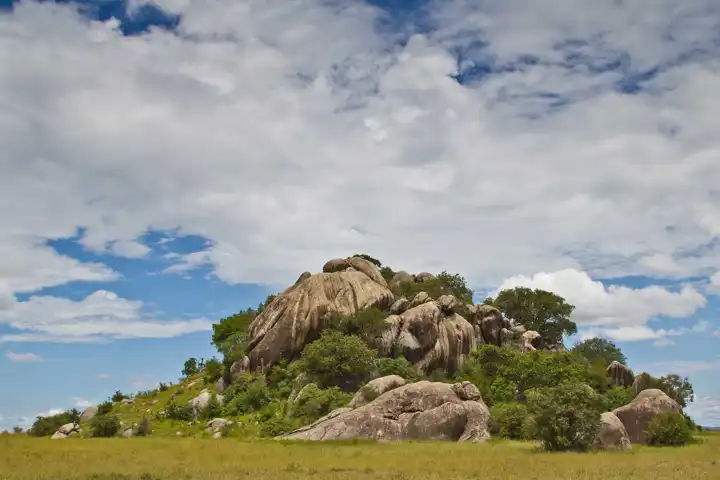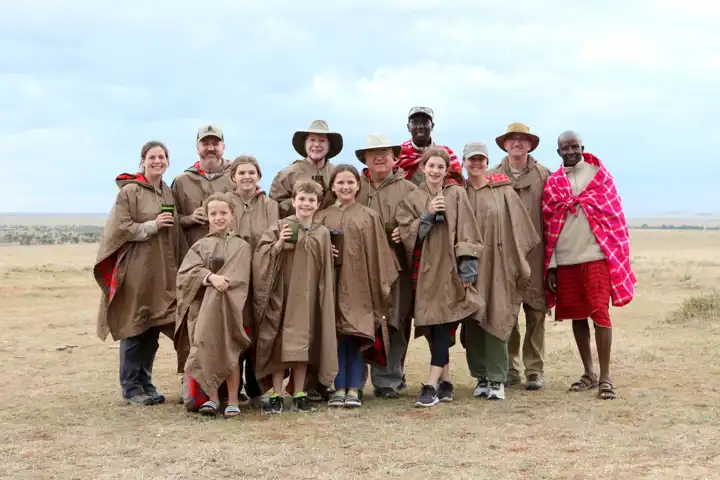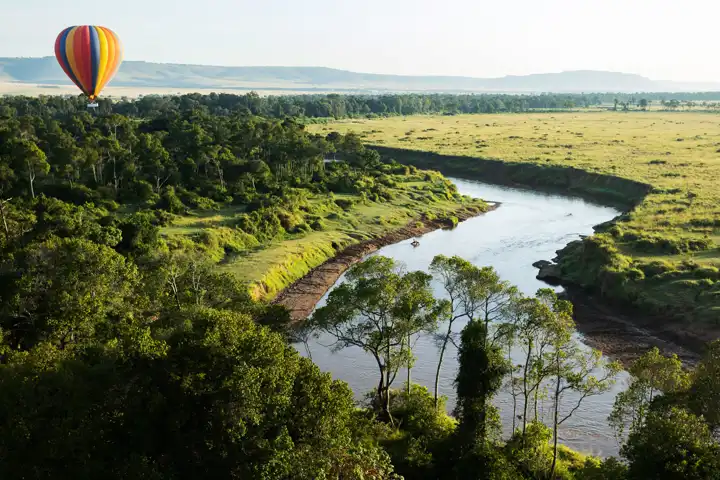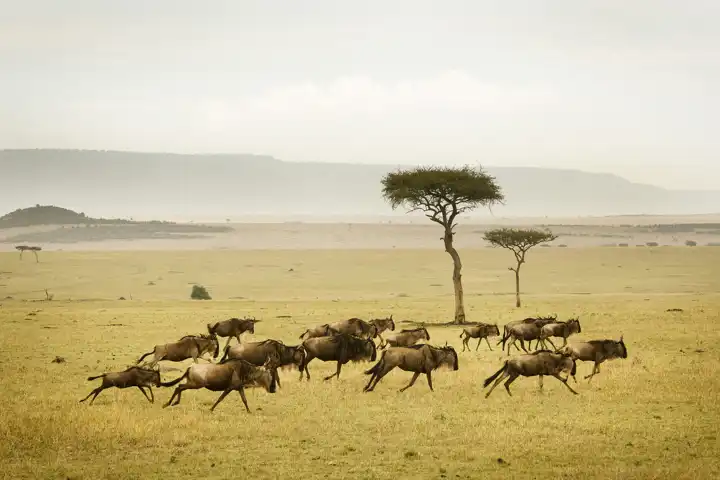East Africa Packing List
The Ultimate Checklist to Prepare for Your Trip
Consider this your ultimate Africa safari packing guide for Kenya and Tanzania.
Don't Overpack
The number one thing to consider when packing for an African safari of any kind is to avoid overpacking. Most properties offer laundry service. Plus, small charter flights adhere to strict weight restrictions, so it is best to pack light. Below you will find our tips for packing light.
Clothing Color
Consider clothing that is lightweight and darker shades of green, khaki, and brown or lighter shades of blue in color. We do not recommend black and darker shades, as they may attract tsetse flies. Also, avoid wearing bright colors like red, purple, and white especially when on a walking safari. Finally, keep in mind that the military may reserve camouflage clothing.
Climate
Both Kenya and Tanzania offer warm days and cool mornings/evenings and are great year-round destinations. However, the climate varies a lot between the rainy and dry seasons.
Kenya and Tanzania have two rainy seasons: March – May (long rains) and October - December (short rains). During the rainy season, the temperatures remain comfortable. Yet higher altitude temperatures can drop below freezing, especially on Mount Kilimanjaro and Mount Meru.
Meanwhile, the coastal and lakeside regions can prove hot and humid. The Ngorongoro Crater rim can get cold at night, while the crater floor can prove warmer and dusty. We therefore highly recommend that you pack with layers in mind.
Luggage Weight Restrictions on Flights
Charter flights within the Kenya and Tanzania limit passengers to 33lbs (15kgs) to 44lbs (20kgs) luggage per person in a soft-sided bag, depending on the airline. They also restrict passengers to 11lbs (5kgs) in hand luggage.
Only pack soft-sided luggage because of the limited space in the light aircraft hull (no hard suitcases). We suggest one medium-sized water-resistant duffle bag and one small daypack for your safari to East Africa.
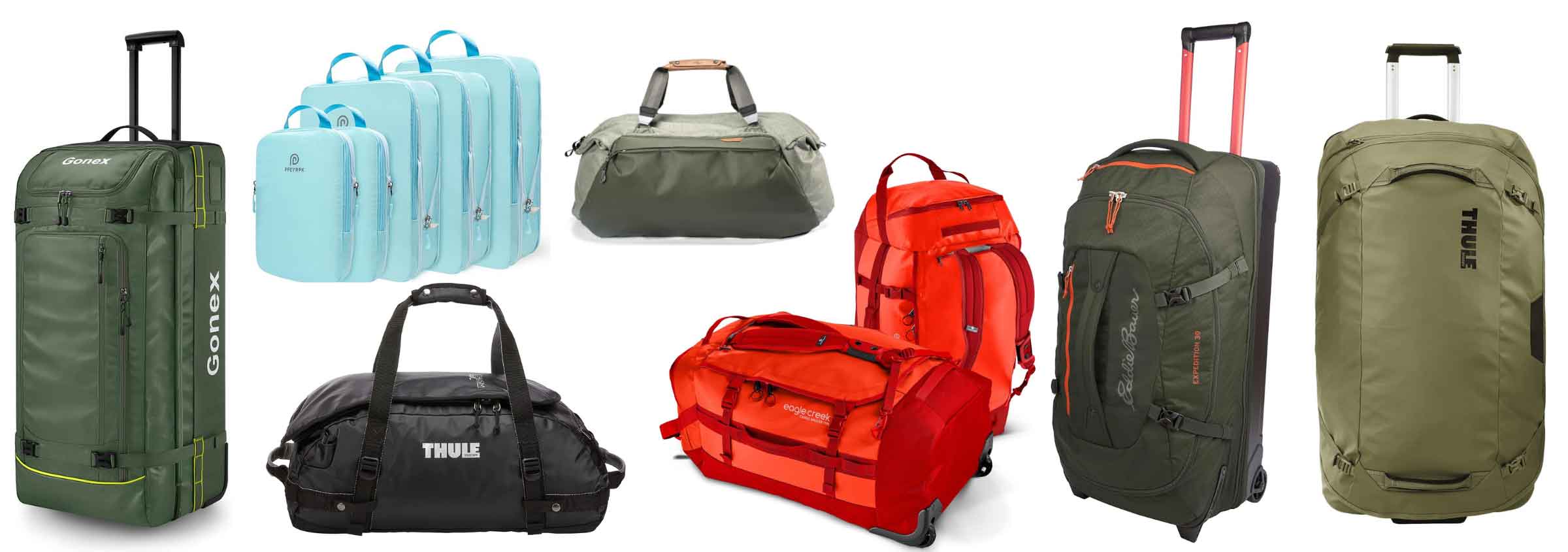
Personal Weight Information
For safety reasons, local charter companies ask us to collect all travelers’ weights in advance. The weight limit per light aircraft seat is 220lbs (100kgs) body weight per person. We understand this can be a sensitive topic, but the safety of our travelers is our top priority. Should you require an extra seat, we can work to secure one at an additional cost.
Plastic in Kenya and Tanzania
Plastic bags are illegal in Kenya and Tanzania, and they will be confiscated if found on entry. Therefore, please pack eco-friendly bags for your trip. For liquids in hand luggage, use transparent toiletry bags.
Kenya is also working to ban all single-use plastics, such as water bottles. This ban may come into force prior to your safari, so please leave any such products on the plane. This includes any duty-free plastic bags.
We suggest you carry a reusable water bottle while visiting East Africa. Most hotels and lodges provide filtered drinking water.
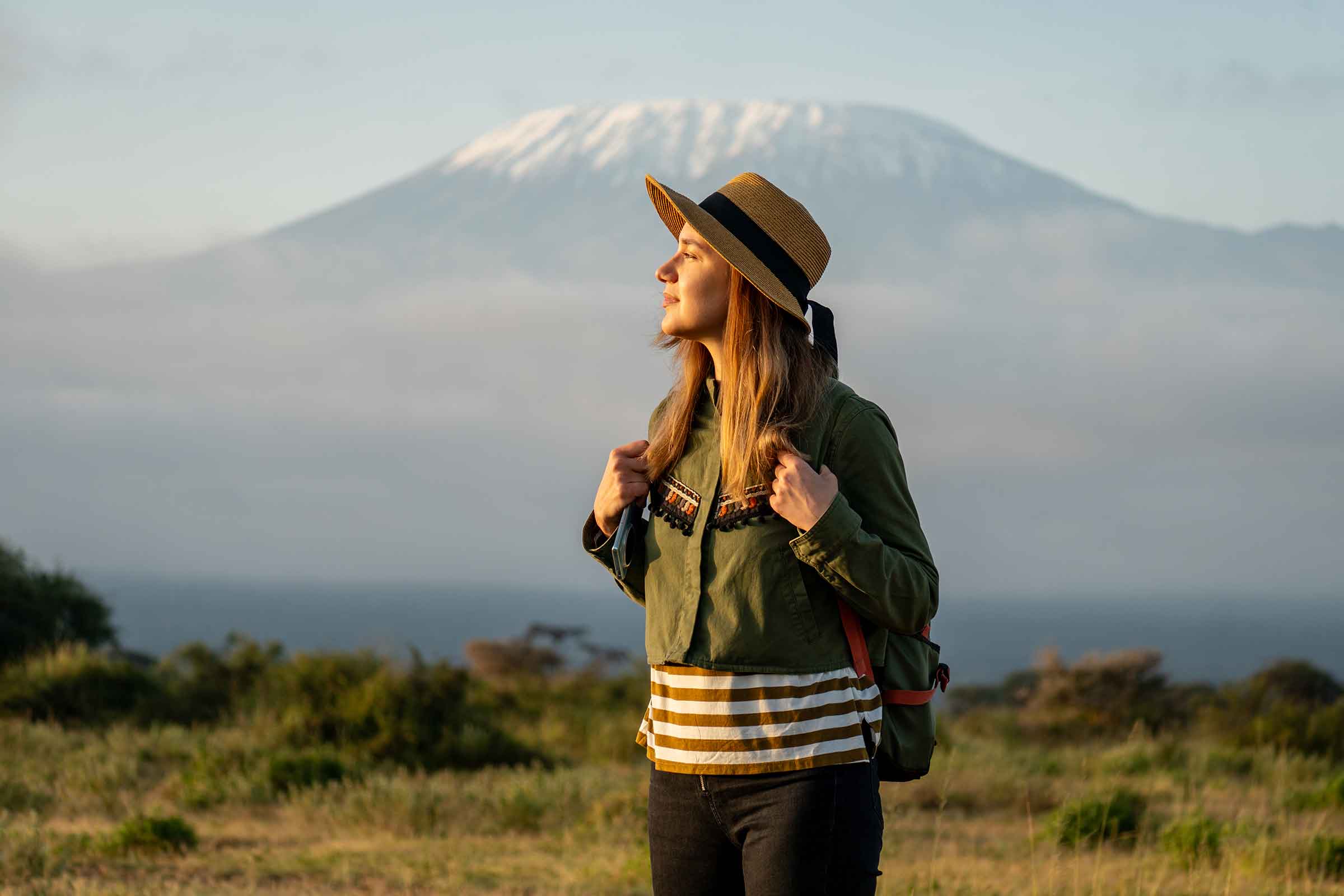
East Africa Safari Packing List Suggestions
Disclaimer: Some of the links below are affiliate links. As an Amazon Associate, Ker & Downey earns a small commission when you click through and make a purchase. You can find all of our favorite products on our Amazon Storefront.
Pants & Shirts
- 3 lightweight shirts with long sleeves (styles with tabbed, rollable sleeves are most versatile)
- 3 pairs of lightweight long pants or long pants that convert to shorts
- 3 pairs shorts and/or capri pants
- 3 pairs of lightweight short sleeved shirts/golf shorts/t-shirts
Outerwear
- A fleece or sweater for evenings and early mornings as it can be cold on game drives
- Lightweight rain jacket during the rainy seasons, March – May and October – December
Shoes and Accessories
- 1 pair of comfortable walking shoes or hiking boots, ideally lightweight and worn-in to avoid blisters
- 3 pairs of socks
- 1 pair sandals/lightweight shoes (for wearing at the lodges)
- 7 pairs of underpants
- 3 bras (sports bras are recommended for the bumpy roads)
- Buff/bandana for dry/dusty areas (e.g. Ngorongoro Crater floor)
- Sun hat with a wide rim to protect the back of your neck against the sun
- Sunglasses with UV protection
- Swimsuit (most properties have swimming pools)
- Flipflops
- Pajamas
- Scarf, gloves, a beanie, and thermal underwear for mountain climbing (Kilimanjaro, etc.)
- 1 pair water shoes if snorkeling/diving
Personal Items
- Passports, visas, tickets, credit cards, insurance documents, phone etc.
- Cash for tips (You may want to bring envelopes for discreet presentation.)
- Personal refillable water bottle
- Daypack for carrying water bottle, camera, binoculars, etc.
- Waterproof/dustproof bag for your camera equipment
- If you wear contact lenses, we recommend that you also bring a pair of glasses.
- Camera with plenty of memory cards and at least one spare battery with its charger
- Travel adapter
- Binoculars
- Dive card and logbook (if applicable)
Toiletries
-
Personal toiletries including toothbrush, toothpaste, preferred lotions, etc.. Though please note most properties will provide essentials like shampoo, conditioner, and soap.
- Basic travel sized medical aid kit (aspirins, bandages, anti-diarrheal, antiseptic cream, eye drops and antihistamine cream, etc.)
- Bring enough of any prescribed medication that you are currently taking to last the length of your trip. Keep it in its original packaging with your name and the prescription information clearly indicated on the label.
- Brush/comb
- Facial tissue and waterless hand sanitizer
- Antihistamine tablets if you suffer from hay fever
- Anti-nausea tablets if you suffer from travel/air sickness
- Moisturizing face cream with sun protection, sunscreen, and lip balm – SPF 30 or higher recommended
- Insect repellent for body application
Put this East Africa Packing List to Use
Are you ready to book your safari trip to Kenya or Tanzania? Then contact a Ker & Downey travel designer to start planning. For even more inspiration, follow us on Facebook and Instagram.
For even more Africa packing tips, see our Men's Safari Packing Guide, Women's Safari Packing List, Southern Africa Packing List, and Primate Safari Packing List.

Talk to A Travel Designer
Get advice and suggestions to make this your perfect trip.
Or give us a call at 800.423.4236.
Inquire NowSee What We Are Up To
Subscribe to our Weekly Newsletter for Travel Tips and Insider Guides for Planning your Next Journey!


